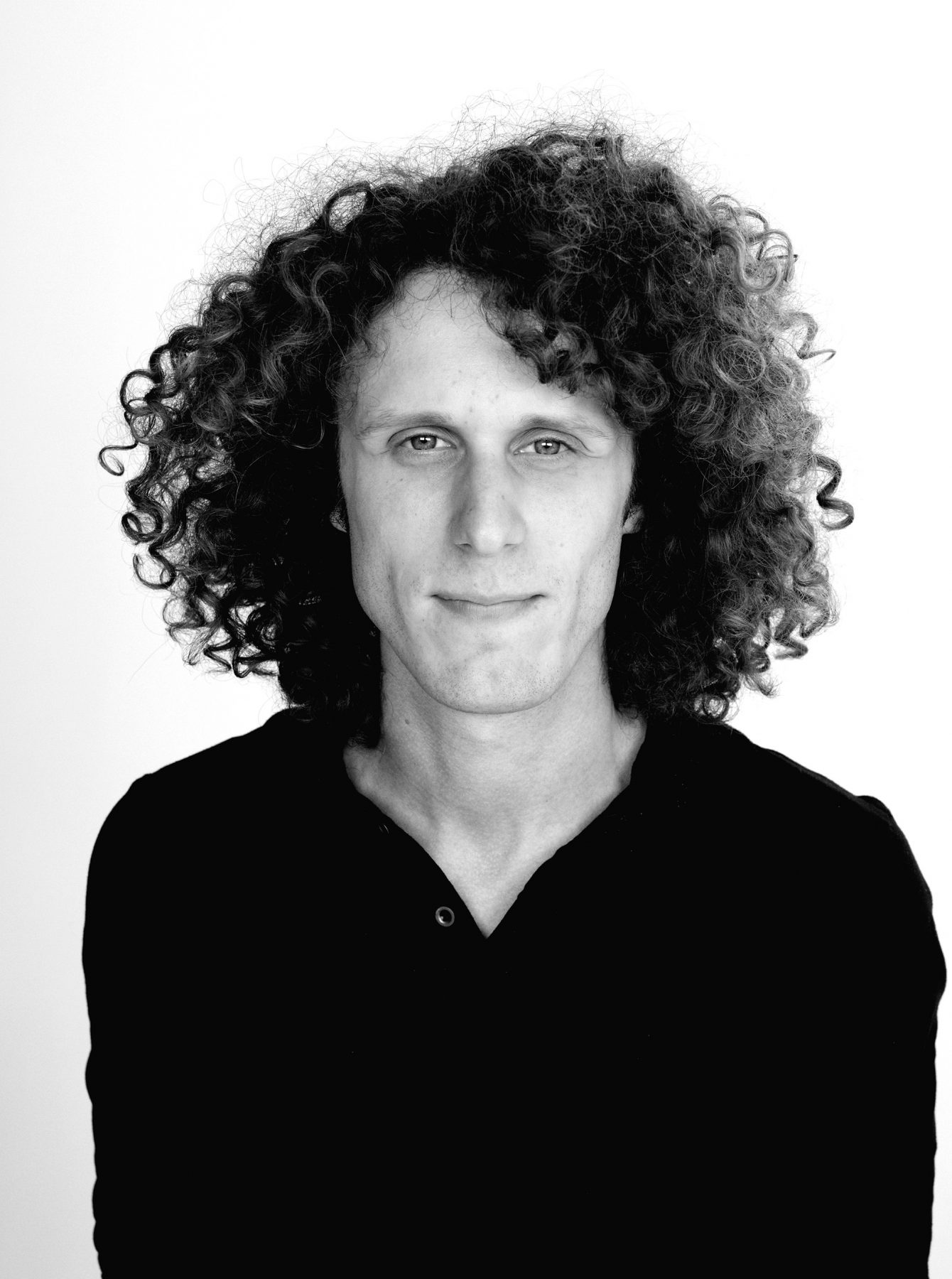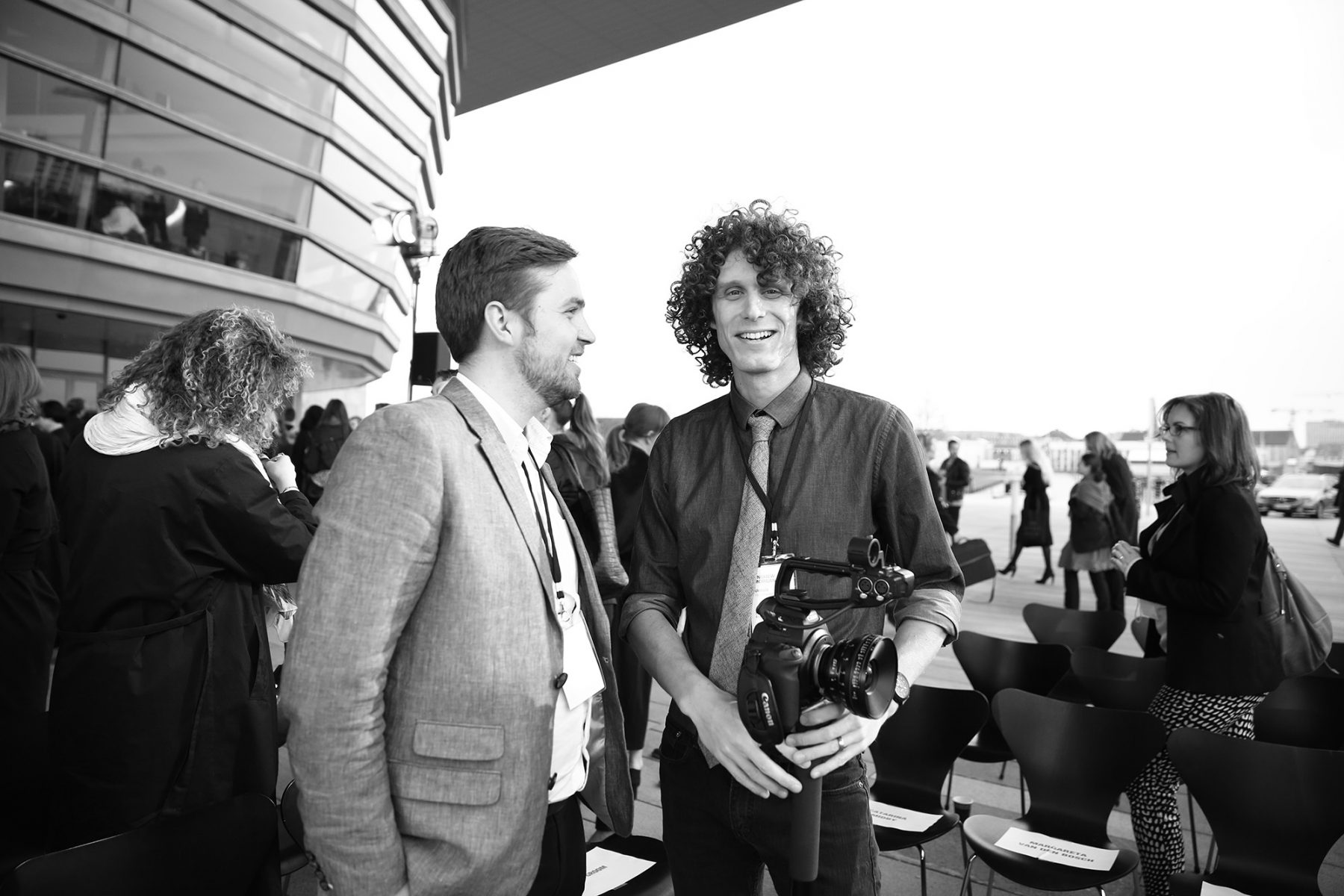
Profile
Andrew Morgan
Andrew is the Director of The True Cost: a documentary that explores the fashion industry and its impact on both the environment and the people behind our clothes.
Tell us about your experience filming The True Cost. What hit home most for you when making this documentary?
Making this film was nothing short of life changing for me and our entire team. I came into the project with no prior experience in the fashion industry, so everything I learned was surprising and often horrifying. The most personally impactful thing was the people we met and spent time with along the way. At the beginning it was just numbers and statistics, but it very quickly became faces, names, and human stories. Those stories stuck with me and it has been a joy being able to share them with people all over the world through the film's release.
How do your personal values shape your work?
My values have shaped my work, but my work has really shaped my values as well. I really love what I do, and love that it allows me to learn so much and spend time with so many different kinds of people. Often those experiences open my mind and heart to new ideas, or reinforce values that were already there.
Has your attitude towards fashion changed as time has passed?
Growing up, I only thought of fashion as style and price—my focus being on that piece of clothing I bought and then took home. Now to understand the worldwide impact that my choices have on people and the planet is really stunning. It makes me realise just how connected we all really are—even when an industry like this works hard to constantly keep us from thinking along those lines.
Andrew Morgan
“We cannot position this as another big bad problem you need to worry about, rather, this is a beautiful opportunity to align more of your choices with the values you already hold.”

How would you describe your relationship with clothing/style?
It has changed quite a bit, from something very passive into something that carries the weight of the stories that I wear. When I look at a beautiful piece of clothing now I begin to ask questions I never asked before: who made it, how, where etc. That has made fashion something far richer and has given me a way to align my values to something as simple as the clothes I wear every day.
The Slow Fashion movement means…
A return to quality, craftsmanship and story. It means beautiful clothing that honours all the hearts and hands that touched it along the way.
The issues facing the fashion industry are so complex, how can we avoid people thinking the solution is as simple as buying something that is made from organic cotton?
Well, I think everyone needs to start somewhere. For a lot of people this is still a concept that is not on their mind. We need to invite people into the process without scaring them away. We cannot position this as another big bad problem you need to worry about, rather, this is a beautiful opportunity to align more of your choices with the values you already hold.
Which areas of the world do you see as being leaders in the ‘ethical fashion’ space and why?
There is so much exciting development unfolding all over the world. I am really thrilled by what I see coming out of London, Hong Kong, Sydney and Copenhagen in particular.
Andrew Morgan
"Fashion is an industry built on creativity and the power to change quickly. What we need now is for fashion to return to that beautiful beginning and become a leader once again—rather than the lifeless corporate controlled machine that it has become. That change is possible and I see every day more and more desire to see it come about!"
Do you worry that fast fashion companies are attempting to appeal to the growing ethical/sustainable consumer in ways that ignore the deeper issues? (One issue being that the fast fashion business model in itself is unsustainable).
Absolutely, and this represents a very real threat to true progress. The business model itself, as you say, is fundamentally unsustainable and built on systemic exploitation, waste and environmental destruction. The question always needs to be about the model itself, not a one-off project or special line. That said, I am really encouraged to see more and more consumers beginning to reject that kind of green washing and ethical marketing.
In Australia, we’re lucky that we have laws in place that protect garment workers in the industry, as well as an accreditation body (Ethical Clothing Australia) that annually audits local supply chains. It becomes a bit more complicated overseas in countries that lack legal frameworks, what are your thoughts on this?
You’re exactly right. This is why a lot of us are pushing hard for greater inclusion of worker protection in trade agreements, and other enforcement of international law. The idea of the race to the bottom has seen industry continuing to move into areas of the world lacking enforceable law, worker protections or union rights. We must continue to do everything we can to give workers in these situations a voice. The greatest success we are seeing is through bottom up / voice of the worker initiatives. At the same time, we can continue to push for policy changes on import laws in our own countries—similar to what you have there at home.
What excites you about the future of the fashion industry?
Fashion is an industry built on creativity and the power to change quickly. What we need now is for fashion to return to that beautiful beginning and become a leader once again—rather than the lifeless corporate controlled machine that it has become. That change is possible and I see every day more and more desire to see it come about!
Images provided by The Trust Cost
Production Sigrid McCarthy
Learn more about The True Cost

